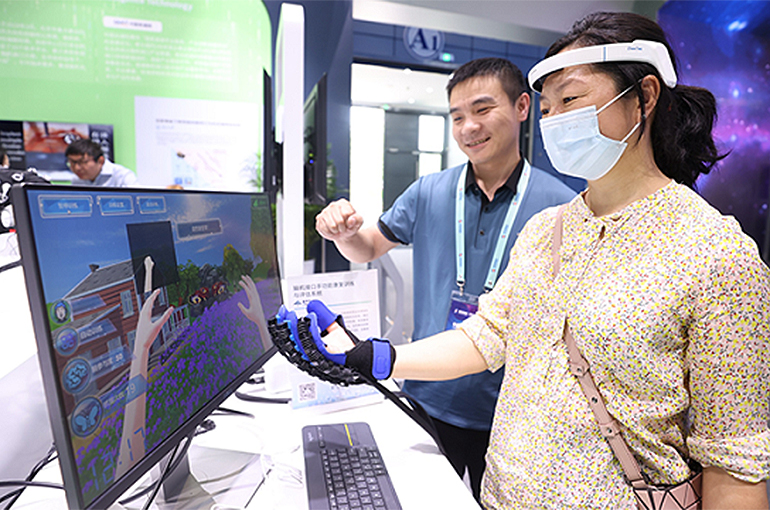 Experts Caution Firms on Brain-Machine Interface Arena as Tech Gains Traction
Experts Caution Firms on Brain-Machine Interface Arena as Tech Gains Traction(Yicai Global) June 2 -- Neuralink, Elon Musk’s brain-machine interface company, recently received approval to begin human trials in the United States, making the cutting-edge technology a new investment target. But some experts warn that because the BMI field has high tech barriers, firms in it should exercise caution.
BMI deeply integrates computer science, neuroscience, mechanical engineering and bioengineering, Sun Rong, senior medical industry analyst at the Frost & Sullivan Research Institute, told Yicai Global.
Companies in this field should not only have enough funds for long-term scientific and technological investment but also build a composite talent team as well as master upstream chip and key component technologies, she said.
If a company lacks the core technology in algorithms and electrodes, it should ideally avoid considering the brain-machine interface fields, according to Jia Yan, director of China Renaissance’s medical and life science business department.
Speaking to Yicai Global, she added that companies need to find suitable applications to conduct research, such as object control or solutions to health problems, including insomnia.
Neuralink, founded by Musk or Telsa and SpaceX fame, announced on May 25 that the US Food and Drug Administration had given approval for it to carry out clinical research on chip implants in the human brain.
This attracted widespread attention from investors, with the brain-machine interface field becoming a new hot spot in the Chinese mainland stock market. Shares of a number of medical tech companies have surged. They include Innovative Medical Management [SHE: 002173], which closed up 4.3 percent today at CNY12.04 (USD1.70) a share, having climbed more than 50 percent this week.
The technology gained traction after a scientific team in Beijing completed a non-human primate interventional BMI experiment in May. This indicated that China’s brain-machine interface technology was among the global leaders, Sun noted.
At the practical level, the main functions of BMIs are divided into two categories: monitoring and communication transmission, and are thus used in medical health, education, and gaming, she said, adding that from the perspective of market demand, BMIs will be mainly applied in the area of brain science research and brain disease rehabilitation at this stage.
Editors: Dou Shicong, Peter Thomas